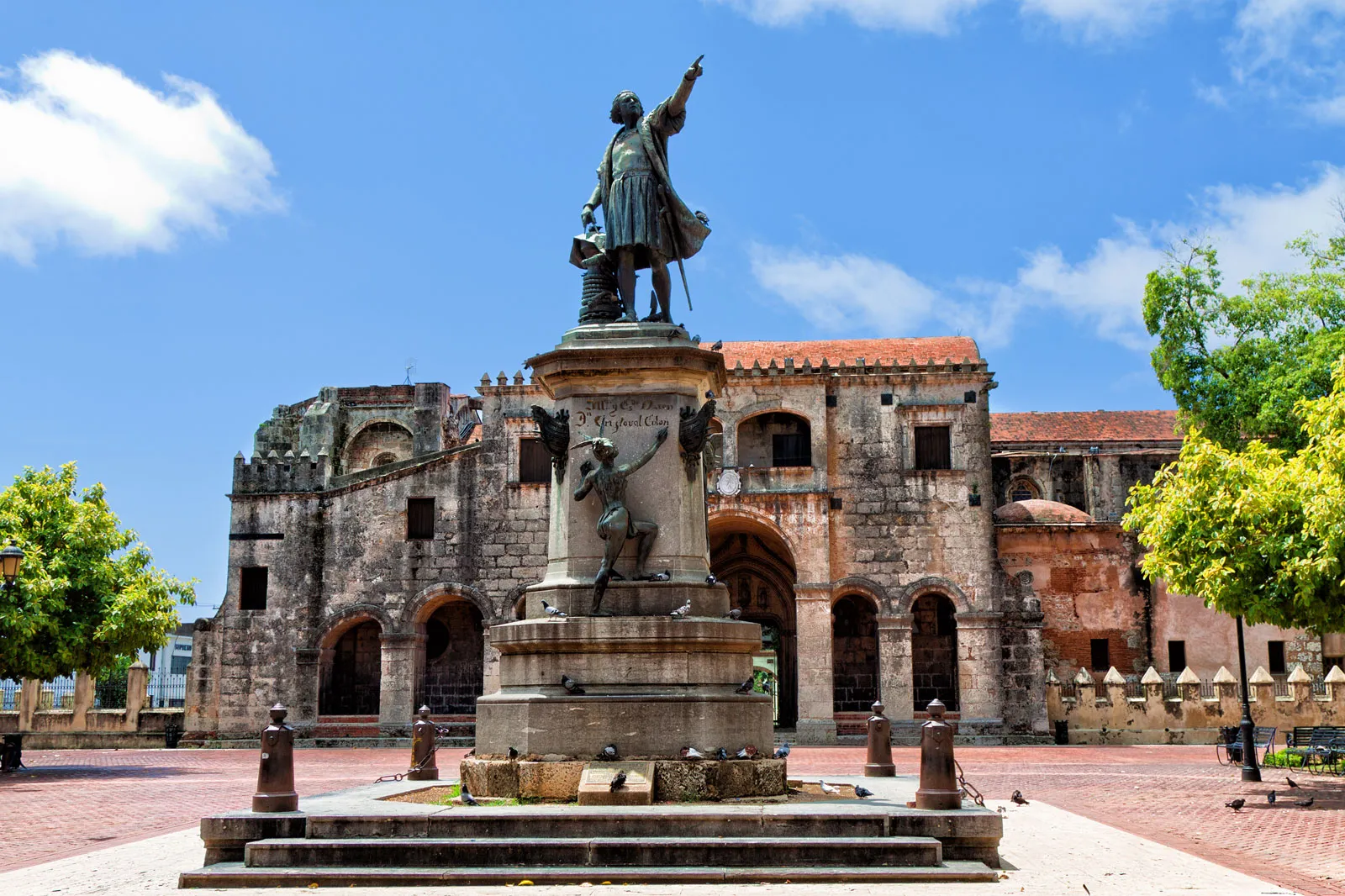Santo Domingo Food Tours
Savor authentic Dominican cuisine through culinary walks, cooking classes, and local food experiences

Santo Domingo's culinary scene showcases authentic Dominican flavors - hearty, flavorful, and deeply rooted in Spanish, African, and Taino traditions. Food tours explore this delicious heritage through Colonial Zone restaurant walks, visits to local markets overflowing with tropical produce, cooking classes learning traditional recipes, and authentic neighborhood food spots. Discover la bandera (the national dish), master making mofongo and mangu, taste fresh tropical fruits, and experience street food culture. Expert food guides share culinary traditions, family recipes, and the cultural significance of food in Dominican life creating delicious educational experiences showcasing real Dominican gastronomy beyond resort dining.
Why Choose Food Tours in Santo Domingo?
Authentic Dominican Flavors
Experience real Dominican cuisine different from resort food - hearty, flavorful, traditional.
Colonial Zone Culinary Scene
Historic setting with excellent mix of traditional and modern Dominican restaurants.
Local Market Experiences
Vibrant markets with exotic tropical fruits, spices, and fresh ingredients.
Cooking Classes
Learn to prepare traditional dishes with hands-on instruction from Dominican chefs.
Types of Food Tours in Santo Domingo
Colonial Zone Food Walks
Walking tour sampling dishes at multiple local restaurants.
Dominican Cooking Classes
Hands-on class preparing traditional dishes.
Market & Street Food Tours
Explore markets and taste authentic street food.
Comprehensive Food Tours
Full culinary adventure visiting markets, cooking, dining.
What to Expect on Santo Domingo Food Tours
Duration
Food walks: 3 hours. Cooking classes: 4 hours. Market tours: 2-3 hours. Full day: 6 hours.
Dominican Specialties
La bandera, mangu, tostones, sancocho, empanadas, yaroa, chimichurri, tres leches.
Venues
Local restaurants, food markets, street vendors, cooking schools, neighborhood spots.
Tastings
Multiple small portions at different stops. Usually 5-7 tastings plus drinks.
Cultural Learning
Food history, Spanish/African/Taino influences, traditional cooking methods.
Interactions
Meet chefs, vendors, food makers. Experience Dominican food hospitality.
Expert Tips for the Best Experience
La bandera (rice, beans, meat) is national dish - must try
Mangu (mashed plantains) traditional Dominican breakfast
Mercado Modelo has food sections with local ingredients
Street food chimichurri burgers Dominican specialty
Tres leches cake originated in Dominican Republic
Presidente beer local favorite accompaniment
Colonial Zone has excellent traditional restaurants
Food tours visit authentic spots you might not find independently
Frequently Asked Questions
Q:What is la bandera?
A: Dominican national dish meaning "the flag." Rice, red beans, stewed meat (chicken, beef, or pork), salad. Simple but flavorful. Represents Dominican flag colors. Lunch staple. Every restaurant serves it. Authentic taste of Dominican home cooking. Usually very affordable ($5-10). Essential Dominican food experience!
Q:What is mangu?
A: Mashed boiled green plantains with butter, often topped with pickled red onions. Traditional Dominican breakfast served with fried eggs, cheese, salami ("los tres golpes" - the three hits). Comfort food. Different from mofongo (Puerto Rico) which uses fried plantains. Hearty and delicious!
Q:How is Dominican food different from Puerto Rican?
A: Similarities but distinct! Dominican: heavier on stews (sancocho), uses more plantains, less spicy overall. Puerto Rican: more fried foods, sofrito base common, different seasonings. Both Spanish/African influenced. Dominican portions generally larger. La bandera vs mofongo as signature dishes. Both delicious - worth trying both!
Q:Are food tours suitable for vegetarians?
A: Challenging! Dominican cuisine very meat-heavy. However, mangu, tostones, rice, beans, tropical fruits vegetarian. Inform operators advance. Cooking classes most flexible. Some tours can accommodate but limited options. Traditional Dominican food centered on meat/seafood. Possible with advance notice.
Q:How much do food tours cost?
A: Colonial Zone food walks: $55-85 with tastings. Cooking classes: $80-120. Market tours: $40-65. Full-day culinary: $140-180. Private tours: premium. Very good value - food alone worth price plus cultural education and guide.
Q:Do I need Spanish?
A: Helpful but manageable without! Food tours typically have English-speaking guides. Menus often Spanish but guides translate. Food itself universal language. Market vendors may not speak English but guides facilitate. More Spanish-speaking than Puerto Rico but tourist food tours accommodate English speakers.
Q:What drinks are traditional?
A: Morir Soñando ("die dreaming" - orange juice and milk), mamajuana (rum/wine/honey/herbs mixture), Presidente beer, rum cocktails, coconut water, passion fruit juice. Mamajuana unique Dominican specialty. Learn about on food/cultural tours. Sweet tropical drinks popular.
Q:When is best time for food tours?
A: Year-round excellent! Food scene active always. Lunch tours (11am-2pm) showcase la bandera and daily specials. Evening tours include dinner spots. Markets best mornings. Not weather-dependent. Weekends busier restaurants. December-April peak but food tours manageable anytime.
Why Visit Santo Domingo?
UNESCO World Heritage site with the oldest European settlement in the Americas
Rich colonial architecture and historic landmarks
Vibrant Dominican culture and authentic cuisine
Excellent museums and cultural institutions
Lively atmosphere with music, dance, and entertainment
Perfect blend of history and modern Caribbean life
Best Time to Visit
Weather
Santo Domingo enjoys tropical weather year-round with average temperatures of 82°F (28°C). The city has a pleasant climate with occasional rain showers and cooling sea breezes.
Best Months
December to April offers the best weather with minimal rainfall, comfortable temperatures, and perfect conditions for exploring the historic city.
Peak Season
December to April brings peak tourist season with higher prices but guaranteed excellent weather and minimal hurricane risk.
Off Season
May to November offers lower prices and fewer crowds, though summer months (June-August) can be hot and humid with more frequent rain showers.
Other Popular Tours in Santo Domingo
Plan Your Santo Domingo Trip
Transportation Tips
Use taxis, ride-sharing services, or public transportation. The Colonial Zone is best explored on foot, and many tours include transportation.
Car Rental Deals in Santo Domingo
Rent a car for maximum flexibility and explore at your own pace on Expedia USA.
Where to Stay
Find the perfect accommodation for your Santo Domingo adventure. From luxury resorts to cozy hotels, we've got you covered.
Best Hotel Deals in Santo Domingo
Discover top-rated hotels with exclusive rates and special offers on Expedia USA.